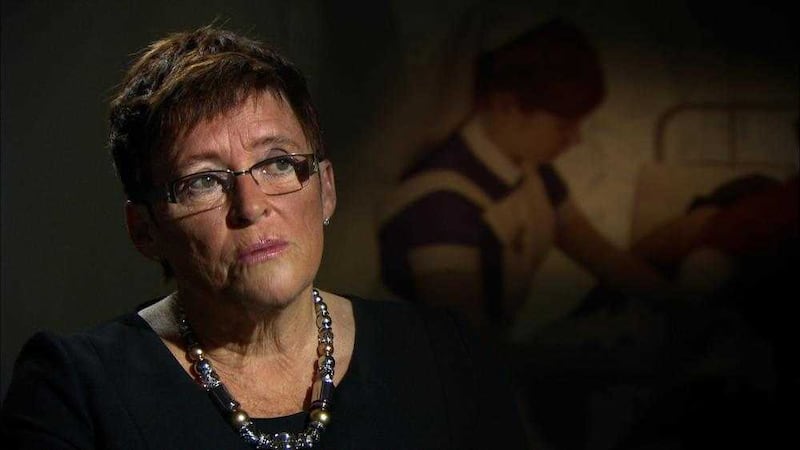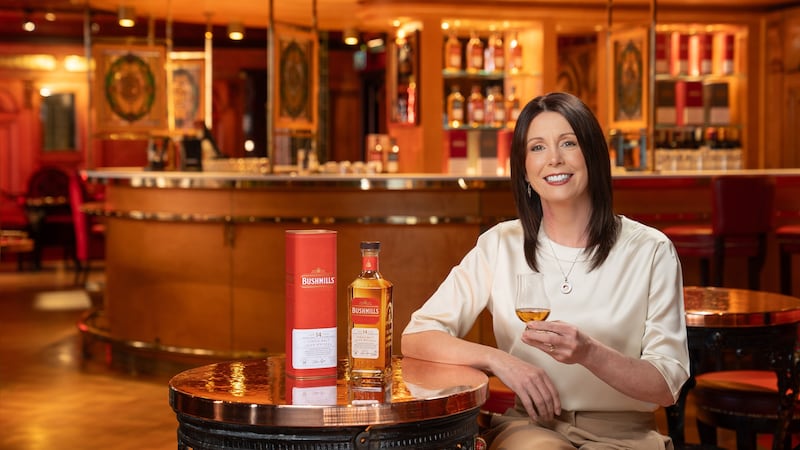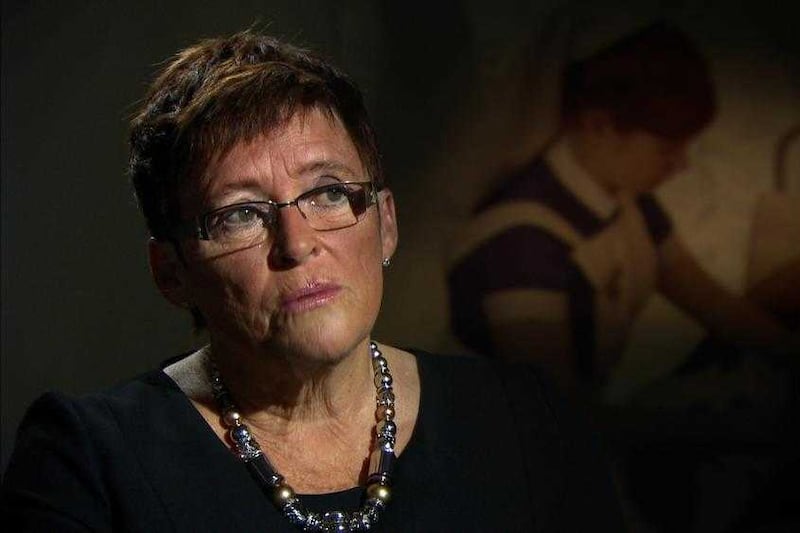AMPUTATED limbs, blood-stained uniforms, constant sirens, bombs going off as you sleep and keeping peace between victims and perpetrators was a daily occurrence for the young nurses in the late 1960s and early 70s.
One new recruit to nursing was Clare Smyth, from Trillick in Co Tyrone. She became a student nurse at Belfast's Mater Hospital in 1971, at the age of 18.
"We came to Belfast and realised we were actually on the war front. Shocking was the only way to describe it," says Clare, who had never actually been to Belfast before visiting the Mater for her interview.
In a class of 25, only three student nurses were from Belfast with almost 40 per cent coming from the south of Ireland.
The reason was that the Mater school of nursing was run by nuns and mothers of nursing students perceived it as "a safe place" for young ladies to be.
However, nowhere in Belfast was safe during this troubled time.
"In many ways I felt more vulnerable because of where the hospital was positioned," says Clare.
"We were between the New Lodge Road and Shankill Road and as the Troubles got worse that area became known as `murder triangle'. We were so close to the street, if there was rioting on the street it almost moved into the A&E department. I remember lying in bed counting how many bombs had gone off and often there were shots fired into the nurses' homes."
After only three weeks of training, Clare and her fellow recruits were thrown into all aspects of nursing and came face-to-face with the horrific consequences of violence.
"The Mater was a small hospital and a large proportion of the staff are the student nurses. We were literally training on the job. You got a lot of very good experience because you were given a lot of responsibility."
One of the worst incidents she experienced during her first year was the aftermath of Bloody Friday, the name given to the series of IRA bombings in Belfast on July 21, 1972. Twenty bombs exploded in the space of eighty minutes, killing nine people and injuring 130.
"I'd been on night duty and was sleeping in the nurses' homes. The next thing somebody came and called on all of us to get up and help.
"We just pulled our uniforms on and went over to the A&E department. I was only 18 or 19 and remember standing at the door taking blown off limbs and bags of body parts from the ambulance service.
"That particular day, all the junior student nurses worked straight through, then briefly went back to get changed and ready for night duty. That night I cared on a ward for 14 patients who were brought back from theatre and who had all been injured in the bombings," recalls Clare.
She is just one of the nurses who shares her memories in a new BBC documentary, which airs tonight, revealing the moving and powerful story of these nurses across more than three decades of conflict in Northern Ireland.
Nurses On The Frontline reports on how the nurses tended to the injured after atrocities such as Bloody Sunday, Bloody Friday and the Enniskillen, Shankill and Omagh bombs.
Counselling, as we know it today, was unheard of then and it was the nurses themselves who supported each other through the dark times. "You just got on with it. We were all so young and fairly resilient. We also had great camaraderie and enormous sense of team spirit."
Due to a 10pm curfew, the security situation and a lack of evening bus services, their social life was restricted – but they still had some good times.
"St Malachy's College Old Boys Association on the Crumlin Road was across the road and there were a few furrows to that," laughs Clare.
"We also had medical students staying and the young doctors and nurses."
The idea of a hospital as a sanctuary came under pressure during the Troubles – especially in Belfast.
Clare was on duty in 1976 when Máire Drumm, the then vice president of Sinn Féin and a commander in Cumann na mBan was killed by loyalist paramilitaries while recovering from an eye operation in the Mater.
“The ward was sprayed by bullets. Máire Drum was in a bed, bleeding to death and two other patients had been injured. We tried to resuscitate her and my uniform got covered in blood, but the fear in the hospital that night was palpable," she recalls.
Thirty-nine years after Drumm's brutal murder, by a series of coincidences Clare got to meet Máire's daughter a few weeks ago.
"It was quite an emotional experience and it brought home to me the legacy of what happened in Northern Ireland in reality. We were fortunate in many ways as nurses.
"We did our thing and then could detach ourselves and go home to the safety and security of our family. But for people like her, who lost her mother, she lives with that every single day and you can still see the hurt she suffers."
Clare's worst memory from her time nursing came in May 1981 – on the night IRA hunger striker Bobby Sands died.
She was working as a staff nurse at the time assisting in A&E. "When news of his death spread the rioting started and at about 4am a young man and his young son were brought in.
"They had been delivering milk when someone threw something into the window of their milk float and they crashed into an electric pole, resulting in both having very bad head injuries.
"In normal circumstances if the Troubles hadn't been bad those patients would have been stabilised in the Mater and transferred to neurology in the Royal. But because the situation was so bad they couldn't be transferred and were brought into intensive care to wait, but both died.
"The family were eventually brought down to the Mater by the police and it was a very difficult thing standing with that mother," says Clare, choking up with the emotion at the memory cries.
"I was married at the time and had children of my own. It was very hard to watch a mother stand there and say 'who do I go to'?"
As the Troubles continued and as she watched her family grow up, Clare sought a change in direction, moving to work in student health at the University of Ulster, before embarking on a career in clinical medical research.
:: Nurses On The Frontline is on BBC One Northern Ireland tonight at 9pm



